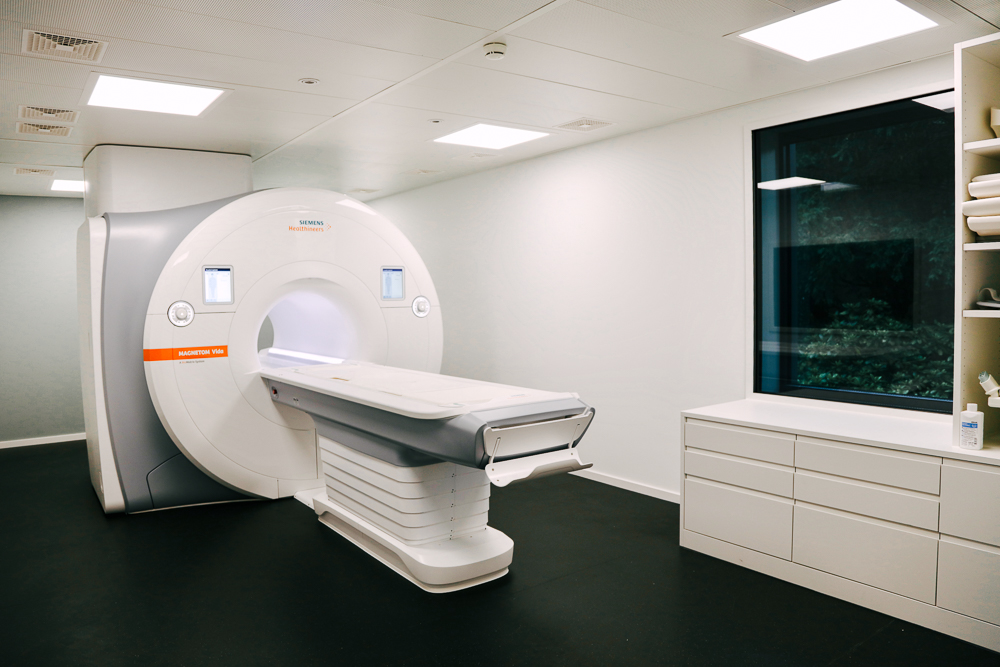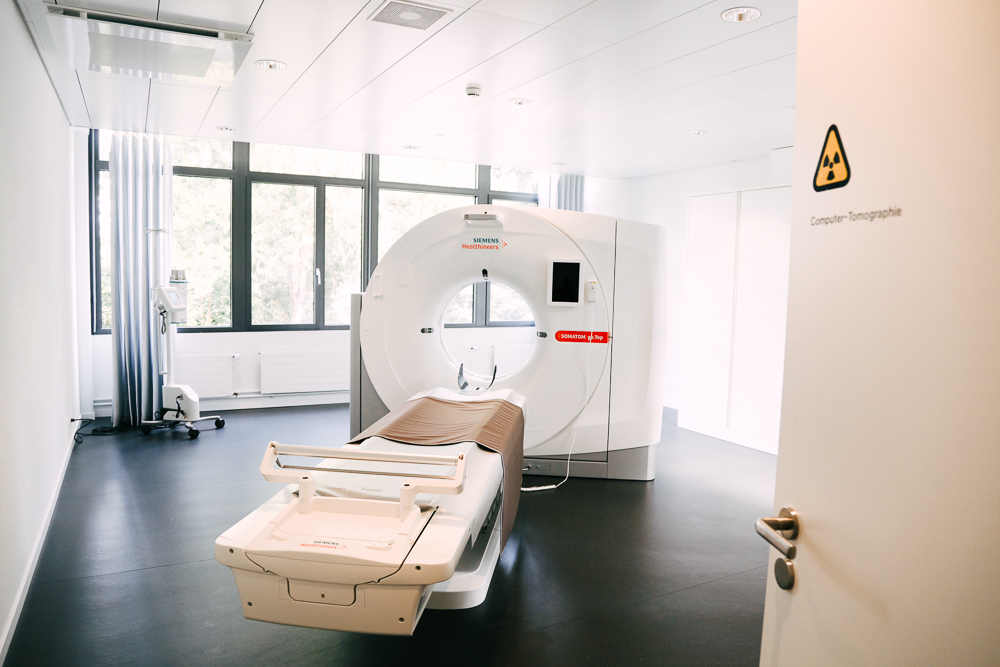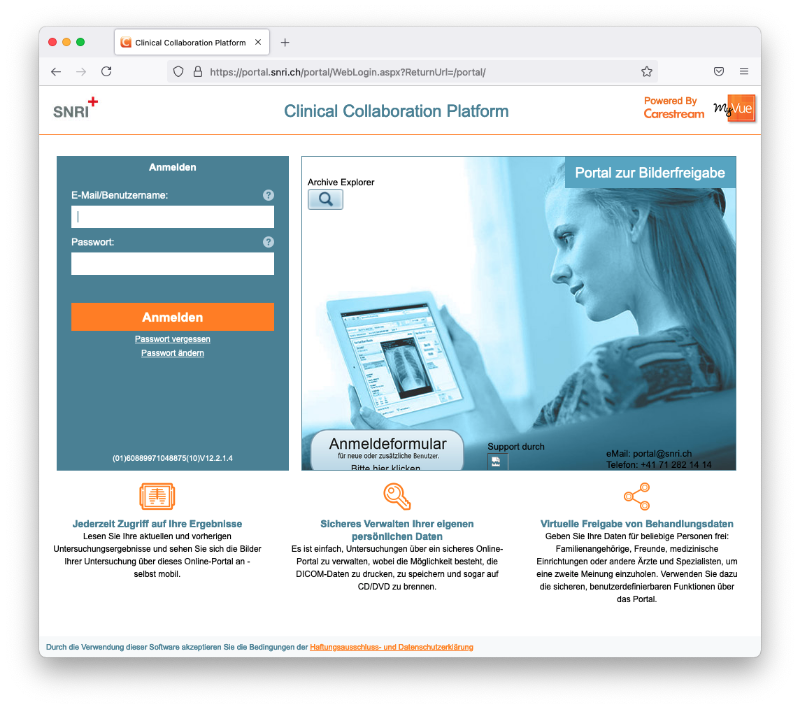Information for patients

“We take away the fears of ageing and maintain your cognitive performance.”
About SNRI
The Swiss Neuro Radiology Institute specialises in the field of neuroradiology. We are dedicated to the research, prevention, diagnosis and treatment of diseases of the brain and nervous system.
Our goal is to develop personalised medicine for you and to offer you access to a medical network of specialists in all fields. This includes holistic preventive medicine, especially clinical neurosciences and vascular sciences with a special focus on ageing.
Our technologies
For diagnostic purposes, we mainly use computer tomography (CT) or magnetic resonance imaging (MRI). The latest equipment of the different technologies is available. Our aim is to make the best diagnosis with the best, fastest and least invasive imaging technology.
CT and MRI offer different advantages: CT is faster, has better imaging of bones, calcifications and blood, whereas MRI offers better imaging of different tissue structures. CT uses X-rays to generate the images, whereas MRI uses magnetic fields and radio waves. X-rays are also used for fluoroscopy. In all examinations with X-rays, care is taken to keep the duration and radiation dose as low as possible.
In addition to our neuroradiological focus, musculoskeletal, abdominal, cardiological and urogenital examinations are also offered.
Neurovascular clinical pictures
Neurovascular diseases are often complex clinical pictures that require a high level of expertise on the part of the treating physicians, both in terms of diagnostics and therapy.
Neurovascular clinical pictures
An outpouching of a cerebral artery with the risk of rupture and consecutive cerebral haemorrhage. If the aneurysm wall is unstable, endovascular or neurosurgical therapy is performed after interdisciplinary discussion. Increasingly detected as an incidental finding by brain check-up.
Severe interruption of the cerebral circulation, caused either by vascular occlusion or a burst, bleeding vessel. Today, much improved treatment options through medical imaging and neurovascular therapies. One of the leading causes of death worldwide.
Rarer malformations of brain and spinal cord vessels, causing blood to be diverted from arteries directly into veins. Risk of bleeding or damage to the central nervous system. Possible consequences: Brain haemorrhage, epileptic seizures, neurological deficits and/or headaches. Usually found by chance during a brain check-up, treatment by endovascular intervention via microcatheter.
Disturbing ear noise that occurs synchronously with the heartbeat. The cause is usually a short circuit between the arterial and venous systems, very often at the bottom of a possibly clinically silent venous thrombosis. The indication for therapy is the prevention of intracranial haemorrhage and simultaneous elimination of the ringing in the ears, which stops after endovascular therapy.
Neurovascular therapy
Minimally invasive procedure through the inside of an artery or vein using very thin catheters. Treatment of pathologically altered vessels: e.g. aneurysm coiling, elimination of pathological short circuits between arteries and veins, treatment of vascular causes of pulse-synchronous tinnitus, sclerotherapy of venous malformation, stenting of vascular stenoses, stroke therapy by mechanical recanalization.
Neurovascular therapy
Elimination of pathological short circuits between arteries and veins.
Removing the vascular causes of pulse synchronous tinnitus.
Removal of venous malformations and vascular stenoses.
Removal of the blood clot by mechanical recanalization.



